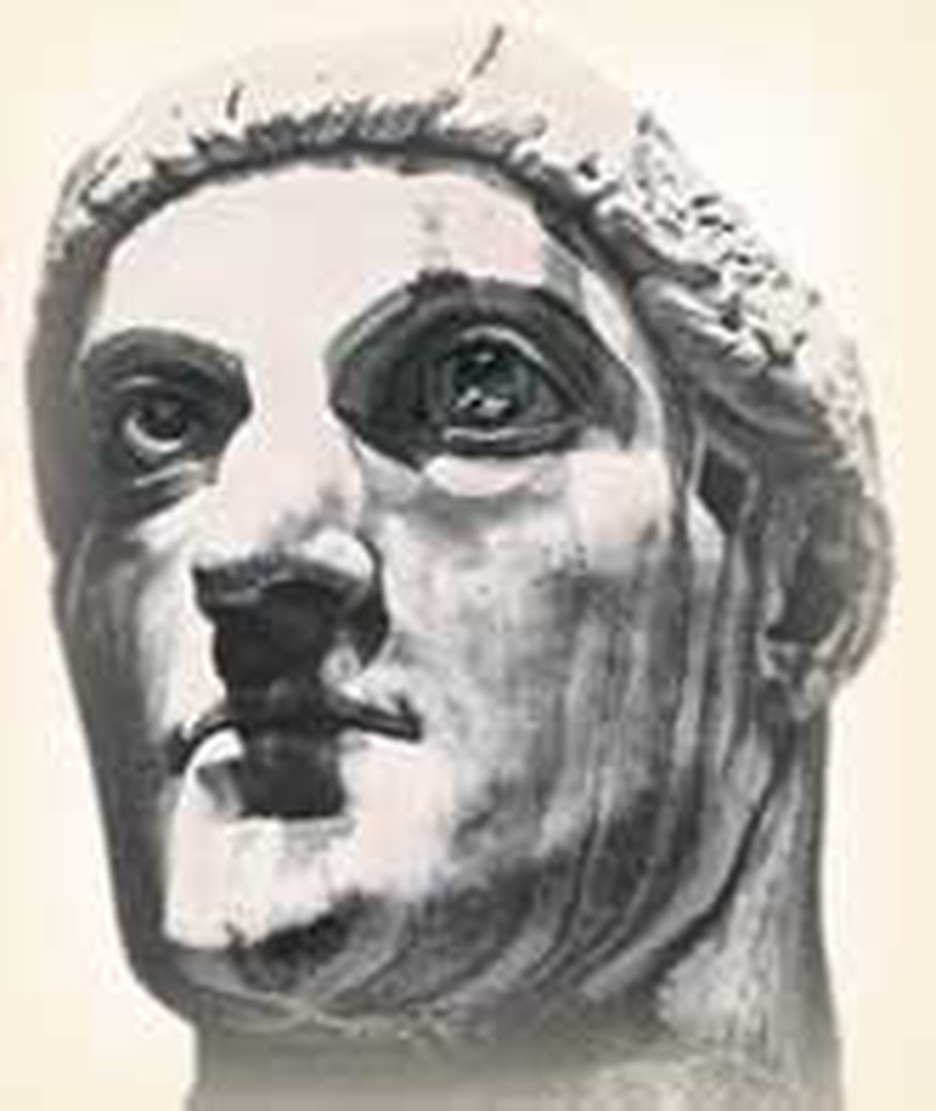
It still stand in Rome, the Milvian Bridge, over the murky Tiber River. Here the battle took place that would be a critical milestone in the unfolding of Christian and European civilization.
The report has been preserved even though it was written almost 1700 years ago. The writer was the first really great historian of the church (Dr. Luke excepted), Bishop Eusebius of Caesarea. He had no doubts whatsoever that the account he gives us is true. After all, The Man was his friend - he told Eusebius personally all that had happened and swore to him it was true. It's an amazing and perplexing story, relating one of those moments that redirects the stream of history for centuries to come.
The Man, Constantine.
Here's what happened. The last great persecutor of the church, Diocletian,
reformed the administration of the Roman Empire and appointed three co-rulers
to govern with him. After Diocletian retired, there was a scramble for
power. One of the scramblers was a general named Constantine, the son
of one of Diocletian's co-rulers.
It was October, 312 AD Constantine and his troops marched toward Rome to do battle with his opponent, another would-be emperor, the tyrannical Maxentius. It was the greatest challenge the gifted young general had ever faced. The stakes were high: Who would control the mightiest empire that had ever appeared up to that time on the face of earth?
As Constantine stopped to consider his battle plans, he realized he needed greater power than just military force. Maxentius was relying on magical enchantments. But how should Constantine pray? His father was a monotheist, believing there was only one God over all. Constantine saw that the pagan gods failed to protect their worshipers. So he sought his father's God in prayer, pleading for him to tell him who he was and to stretch forth his hand to help him. As he prayed (it was a little after noon), Constantine had an absorbing vision. He saw the sign of the cross emblazoned across the sky and the words In hoc signo vinces, "In this sign you will win."
Constantine was struck with amazement, along with his whole army (which also witnessed the miracle). That night in his sleep it was confirmed: this was the Christ of God he was dealing with. So went the report of Eusebius.
Constantine accepted the vision. He adopted the sign. He had the cross inscribed on his soldiers' armor. He went into battle. Even though his forces were outnumbered, he won.
Pacifist rights established through military conquest
After his momentous victory in the battle at the Milvian Bridge, it is
safe to say that the world would never be same-and the church would never
be the same. It is hard to miss the perplexing irony that a church that
had been largely pacifist, that long survived as a suffering body, never
cooked up any subversive political plots, and had never taken up arms,
would find its right to exist established through a political and military
conquest.
The sweet taste of power
The church began to savor the first sweet taste of secular power. Constantine
patronized the church with favors it had never known before. He moved
toward making Christianity the official religion of the empire. It didn't
happen all at once, of course. But a dramatic new course had been set.
Christianity had prevailed. It became the authorized faith of the Roman
Empire by the end of the fourth century. And the more the political power
of the empire waned, the more the church became the stabilizing and unifying
source for the Roman society, outlasting the empire, and in a sense eventually
replacing the empire.
Doing as they had been done by
"Success" brings its own kind of problems. For the church, prestige
and power proved more precarious than the pressure of persecution. The
church spread more rapidly than it ever had before. It became easier,
indeed fashionable, to become a Christian. Accommodations were made to
the pagan pasts of the new members. And sad to say, the church, which
had known such prolonged oppression, did not shrink from becoming an oppressor
once in power.
Was Constantine a Christian?
Was Constantine truly a Christian or just a political opportunist who
saw the Christian movement as the wave of the future, a good ally for
his ambitions? Why did he put off his baptism until just before his death
in 337? Some see him as God's appointed agent for the church. They remind
us of his great contributions to Christianity. For instance, in 325 he
convened and presided over the Council of Nicea, an important council
that checked heresy and defined orthodox doctrine. Beyond any doubt, he
took great personal risks in his espousal of Christianity. However, others
see him as the catalyst that plunged the church into a sad departure from
biblical faith and practice.
"Constantinian Christianity" provided benefits that have blessed the church down to our own day. But it also brought many temptations and raised questions about the true nature of the church. Some of these problems we are still facing.
Constantine's Mom: The First "Christian
Archeologist"? |








